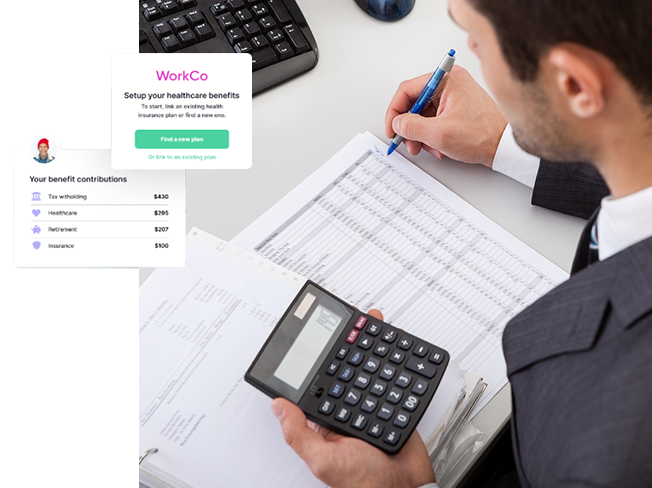
Running a business means juggling a plethora of responsibilities. You could tackle a human resources dilemma one minute and address a customer’s grievance the next. The constant shift between roles often makes it challenging to keep up with business management’s less frequent yet critical tasks, like taxes.
Integrating tax planning strategies for small businesses in the modern age into this whirlwind of activities is crucial, yet it can seem daunting amidst the daily demands of business operations.
Taxation 101 for Small Businesses
For small business owners who wear multiple hats daily, the world of taxes could be daunting. Understanding the basics of taxation is a cornerstone of running a successful business. Here’s a simplified guide to Taxation 101 for Small Businesses to shed some light on this complex subject.
Key Tax Terms and Concepts
First up, let’s decode some jargon.
Gross income is everything your business earns before any deductions are made. Think of it as your business’s total sales.
Net income is what you have after subtracting all allowable expenses—it’s what you get to take home.
Deductions are specific expenses the government allows you to subtract from your gross income, reducing your taxable income and, by extension, your tax liability.
Tax credits are even better; they’re amounts you can subtract directly from the taxes you owe.
Core Tax Planning Strategies
When it comes to saving money on taxes for your small business, there are certain decisions you can make. Consider tax planning a game in which knowing the rules might help you score higher. Here are some key techniques to help you keep more of your hard-earned money.
Deductible Expenses: Save as You Spend
Save receipts for things you buy for your business. The cost of running a home office, the electricity bill, buying supplies, or even travel expenses for work can be part of this. When tax time comes, these receipts can lower the money the government says you owe in taxes. It’s like getting a discount on your tax bill for spending on your business.
Asset Depreciation: Spread Out the Costs
Some items you buy for your business, like computers or machinery, can’t be written off immediately because they last more than a year. You get smaller breaks over several years instead of one big tax break. This strategy, called depreciation, spreads out the cost of expensive items so you can reduce your tax bill a little bit each year for a few years.
Retirement Planning: Save for the Future
Think about the future of your business and how to take care of it now. Setting up a retirement account for yourself and your employees doesn’t just help everyone save for the future; it also means you pay less in taxes now. The money you put in these accounts is like being invisible to taxes until you take it out when you’re older.
Tax Credits: Straight-Up Savings
Tax credits are like golden tickets that directly reduce how much you owe in taxes, dollar for dollar. If you do certain things, like hiring people from specific groups who find it harder to get jobs or using green energy, the government may give you these golden tickets as a “thank you” for doing something good. It’s a way to pay less in taxes while also helping out.
Worried About Tax Season?
Say goodbye to stress and let us manage your
numbers with meticulous care.
Reduce Your Business Debt
Generally, the money spent on business costs doesn’t lower your taxable income, with a notable exception being the interest on loans. If your business is carrying a loan and you have some extra cash, consider making additional payments towards that loan or even clearing it completely. This strategy allows you to deduct the paid interest from your taxes.
However, it’s important to note that interest from personal expenses charged to a credit card is not deductible. For more details on how interest deductions work for non-farm businesses, refer to IRS Publication 334. If you’re looking for information on deducting interest for farming businesses, IRS Publication 225 has the necessary guidelines.
Advanced Tax Planning Techniques
When you’re ready to take your small business tax preparation to the next level, explore some advanced tactics. These strategies are like hidden moves in a game that can help you save even more money on taxes. Let us look at these tactics in an easy-to-understand way.
Choosing the Right Business Structure
Think of your business like a building. Buildings have different designs, and businesses like LLCs (Limited Liability Companies), S-Corps, or C-Corps can be set up differently. Each of these structures affects how much tax you pay in different ways. Picking the right one can help you keep more of your money.
Paying Family Members
If you have family members working for your business, you can pay them for their work. This is smart because it moves money from your business (which might be taxed at a higher rate) to your family members, who might be in a lower tax bracket. This means the overall tax paid on this money could be less.
International Tax Planning
For businesses that work in different countries, there are special tax rules. By understanding these rules, you can find ways to reduce how much tax you pay overall. It’s a bit like knowing the best travel hacks that can save you money on trips abroad.
Challenges and Common Mistakes
When running a small business, dealing with taxes can sometimes feel like trying to walk through a maze blindfolded. It’s easy to bump into problems or make mistakes. Let’s discuss some common hurdles and slip-ups in tax planning and how to avoid them.
Mixing Personal and Business Expenses
Business money and personal money shouldn’t mix. Using the business account to pay for personal stuff (or vice versa) can complicate taxes and cause trouble with the tax authorities. Keep them separate to make your life easier.
Missing Deadlines
Turning in your tax forms late is like showing up at the bus stop just as the bus is pulling away. You’ll end up paying late fees, just like paying for a taxi because you missed the bus. Mark those tax deadlines on your calendar in big red letters to avoid unnecessary fines.
Not Keeping Good Records
If you don’t keep track of what you spend and earn, come tax time, you’ll scramble to find receipts and invoices, probably wishing you had a time machine. Good record-keeping throughout the year saves you a headache and ensures you don’t miss out on any deductions.
Trying to Do It All Yourself
If taxes were easy, tax professionals would be out of a job. There’s no shame in asking for help from a tax advisor, especially with complicated tax issues. It’s better to pay for expert advice now than for mistakes later.
Tailored Solutions to
Your Business
Needs
We believe that each business is unique, which is
why we tailor our bookkeeping services to meet your
specific needs. From companies to established businesses,
we have your back!
Contact-Us
Not Planning Ahead
Not thinking about taxes until the last minute is like waiting until the night before a big test to study. Planning your tax strategy throughout the year allows you to make smarter business decisions that may lower your tax bill.
Overlooking Deductions and Credits
Sometimes, businesses miss out on deductions and credits simply because they don’t know they exist. It’s like leaving money on the table. Ensure you know what deductions and credits you can claim to maximize your savings.
Future Trends in Tax Planning
There are trends shaping up that give us a good idea of where things are heading. Let’s explore some of these trends that small businesses should monitor.
Digital is King
More and more, tax filing and management are moving online. This means small businesses must be savvy with digital tools and platforms. Keeping digital records and using online tax preparation and filing services is becoming the norm. This shift can make tax management more efficient and accessible, but businesses must stay updated with digital tax regulations.
Remote Work and Taxes
With more people working remotely, tax planning gets a bit more complex. For example, if you or your employees work in different states or countries, it could affect your tax situation. Understanding how remote work impacts where and how you pay taxes.
Environmental Incentives
Governments around the world are offering more tax incentives for businesses that take steps to reduce their environmental impact. This could mean deductions or credits for using green energy, reducing waste, or investing in sustainable practices. Staying green helps the planet and could also help your tax bill.
Lighten Your Load with
Affordable BookKeeping
Packages
We offer competitive packages that won’t break the bank,
and up-front pricing so you know exactly what you’re getting
as your return on investment.

Cryptocurrency and Digital Assets
As digital currencies like Bitcoin become more common, tax authorities are figuring out how to deal with them. If your business trades in digital currencies, you must monitor how these assets are taxed. Regulations are still evolving, so staying informed is key.
Global Tax Changes
The world is more connected than ever, and tax laws are starting to catch up. New international tax rules could affect small businesses with overseas customers or operations. Understanding global tax trends will help you plan your international business strategy.
Conclusion
From understanding the basic tax obligations to piloting advanced strategies and peering into future trends, it’s clear that tax planning is not just about compliance—it’s a vital part of strategic business management. With the help of core strategies, small businesses can stay aware of common pitfalls and prepare for future changes.



